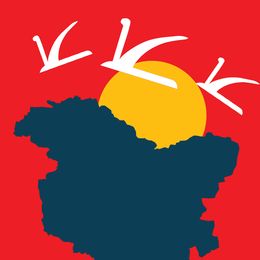Of the 49 seats in the Kashmir valley, the National Conference won 42; the Congress, six; the CPI(M), one; the BJP, zero; the Jamaat-e-Islami, zero. It was a clean sweep for INDIA.
It is not that the Central government’s representatives since August 5, 2019, have done nothing. It is appreciated that ‘normalcy’ of a kind has been restored—even if at the point of the AK-47. It is appreciated that schools and colleges are open, that hospitals and primary health centres are working, that Central welfare schemes are being implemented, that new development schemes have been undertaken, that the economy has been re-geared, that fresh private investment is being sought, that transport is running smoothly.
There is no doubt of the tourist boom and of the planeloads of curious visitors and pilgrims, particularly Hindus, from all over the country, being flown in. It is also evident that free and fair elections have been held, notwithstanding some gerrymandering to increase Jammu seats. And, yet, the BJP could garner only 5 per cent of the vote in the valley. Why? Because ‘Man does not live by bread alone’.
More because of its poetic cadence than because of any deep philosophical insight, Atal Bihari Vajpayee hit the right note when he formulated the essence of a lasting solution to the valley’s alienation as lying in, “Kashmiriyat, jamhooriyat, insaaniyat” (Kashmir’s inclusive culture, democracy, and common humanity). Protest against the denial of these three vital requirements has been registered right across the valley.
The forced integration through the reading down of articles 370 and 35A, the bifurcation of the state, and its downgrading to a Union territory, are a denial of the Kashmiri identity to force a people proud of their composite credentials into the straitjacket of ‘uniformity’ that lies at the core of the hindutva project. Kashmir chose India in preference to Pakistan because its leaders recognised that Kashmiriyat would be safer in secularism than in Islamic Pakistan, for exclusion and Kashmir’s traditions of inclusion are incompatible. However, Kashmir could only be Indian if it were encouraged to remain Kashmiri—the same deal that led to the Dravidian movement abandoning separatism in favour of being Tamil in India, provided always they would remain Tamil in India.
Self-respect, dignity, and the preservation of identity, require self-rule. In our freedom movement, we were prepared to remain within the empire provided, like other dominions, we could rule ourselves through our own elected representatives and a government based on majorities in the state and central legislatures. It is only after that demand found no takers in Westminster that on January 26, 1929, Jawaharlal Nehru, as Congress president, was authorised to declare purna swaraj (complete or unfettered independence). Something similar is being demanded in Kashmir: their right to full statehood as applicable to other states of the Union of India—failing which aazaadi (complete or unfettered independence—purna swaraj). Until that is understood, until Delhi recognises that what unites J&K is the common demand of the Hindu majority in Jammu and the Muslim majority in Kashmir for full-fledged democracy (jamhooriyat) in full-fledged statehood. This is clear from the Lokniti-CSDS survey which shows 80 per cent Kashmiris and over 43 per cent Jammu-ites seeking the restoration of statehood without delay.
Above all is the need for insaaniyat (humanity), that is law and order that are self-ordained and not enforced by dictate from above through a panoply of weapons and tens of thousands of soldiers, paramilitary and security forces. There is no insaaniyat in a soldier cradling his weapon at every street-corner. Nor is there any insaaniyat in treating every Kashmiri as a terrorist—kinetic or potential. What is needed and must be made evident is trust—in the Kashmiri, in Kashmiriyat, in jamhooriyat and in insaaniyat. Omar Abdullah has his work cut out.
Aiyar is a former Union minister and social commentator.


